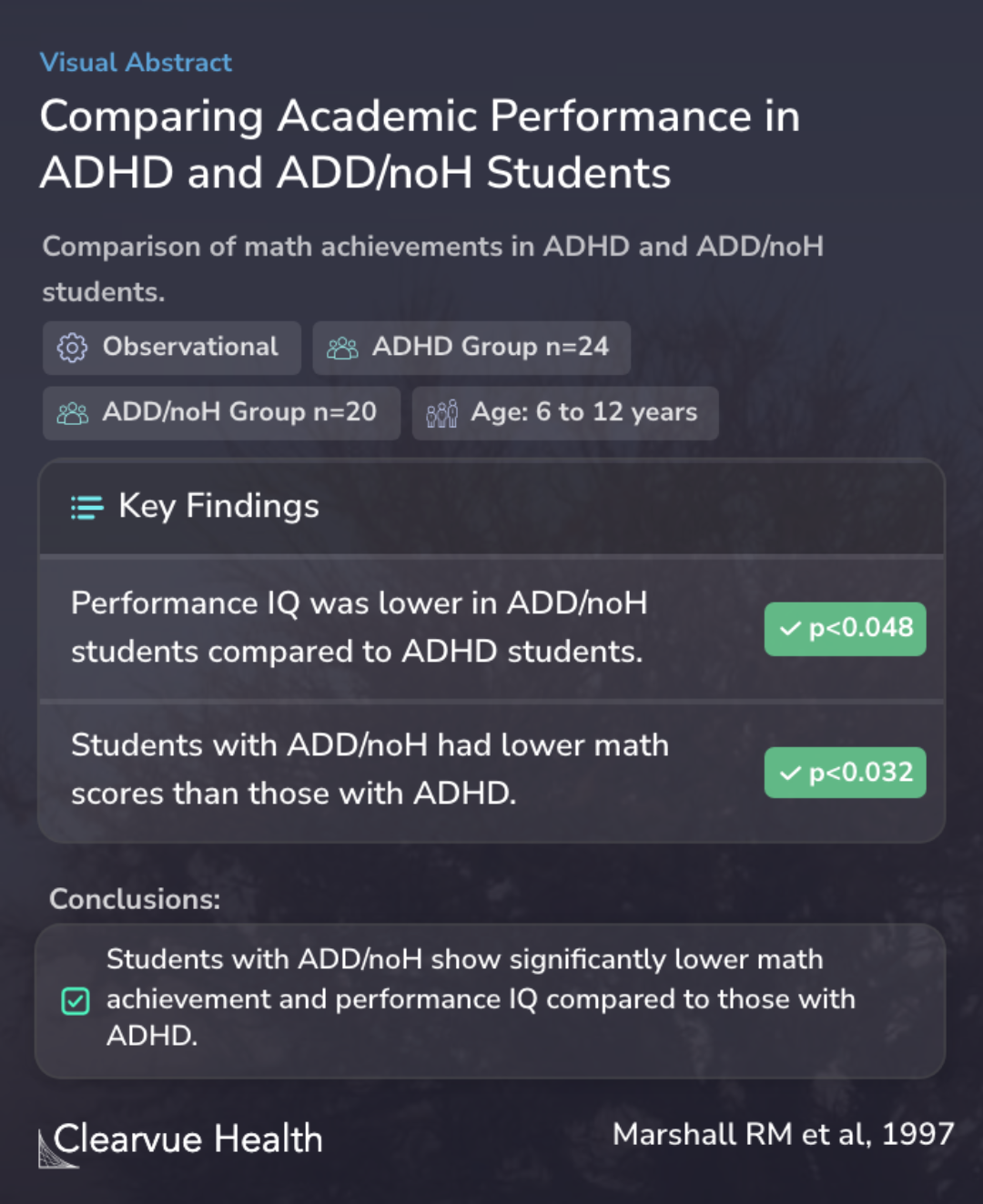Academic underachievement in ADHD subtypes
Comparing Academic Performance in ADHD and ADD/noH Students
Marshall RM, Hynd GW, Handwerk MJ, Hall J

Objectives
The study examined the relationship between ADHD, hyperactivity, and academic underachievement, particularly in math. This exploration was crucial as ADHD's complex effects on academics have been widely discussed in previous studies. While ADHD is known to impact verbal learning, this study sought to understand its specific influence on mathematical abilities.
The study examined the relationship between ADHD, ADD/noH, and academic underachievement, particularly in math.
Methods
In their approach, the authors compared the math scores and performance IQ of students diagnosed with ADHD and ADHD without hyperactivity. This comparison was significant, considering that previous studies have shown that ADHD affects learning not necessarily due to IQ but due to its inherent characteristics. The method involved analyzing the academic performance of these two distinct groups, shedding light on how these conditions impact learning differently.
The study compared math scores and performance IQ of students with ADHD and ADD/noH.
Results
The results revealed that students with ADHD and no hyperactivity had significantly lower math scores and performance IQ than those with ADHD with hyperactivity. This finding is crucial as it indicates that ADD/noH might be a distinct subtype of ADHD, especially in how it affects learning abilities. These results align with previous research, suggesting a foundational link between ADHD and specific academic challenges beyond just IQ differences.
Students with ADD/noH had significantly lower math scores and performance IQ than those with ADHD.
Conclusions
In conclusion, the study supports the notion that ADHD without hyperactivity may represent a distinct subtype of ADHD. It hypothesizes that inattention in ADHD without hyperactivity interferes with the ability to master abstract symbol systems, especially in acquiring basic arithmetic skills. This conclusion is vital as it adds to our understanding of how different subtypes of ADHD uniquely affect learning, particularly in math, an area less explored in previous ADHD research.
These findings support previous research suggesting the ADD/noH may represent a distinct ADD subtype. It is hypothesized that inattention interferes with students' ability to master abstract symbol systems, especially in the acquisition of basic arithmetic skills in the primary grades.
Key Takeaways
Context
Roth et al. (2004) explored the link between ADHD, working memory, and verbal learning. They found that those with ADHD struggled more with working memory and verbal learning, possibly due to anxiety rather than difficulty in organizing thoughts. This earlier study's findings complement the current study by showing that ADHD's impact on learning extends beyond verbal skills to include challenges in mathematical abilities.
Paloyelis et al. (2010) investigated the genetic factors linking ADHD, IQ, and reading abilities. They discovered that ADHD and reading difficulties share many genetic factors, primarily independent of intelligence. This finding is significant for the current study as it further supports the idea that ADHD's influence on academic abilities, including math, is complex and multifaceted, involving more than just IQ or genetics.